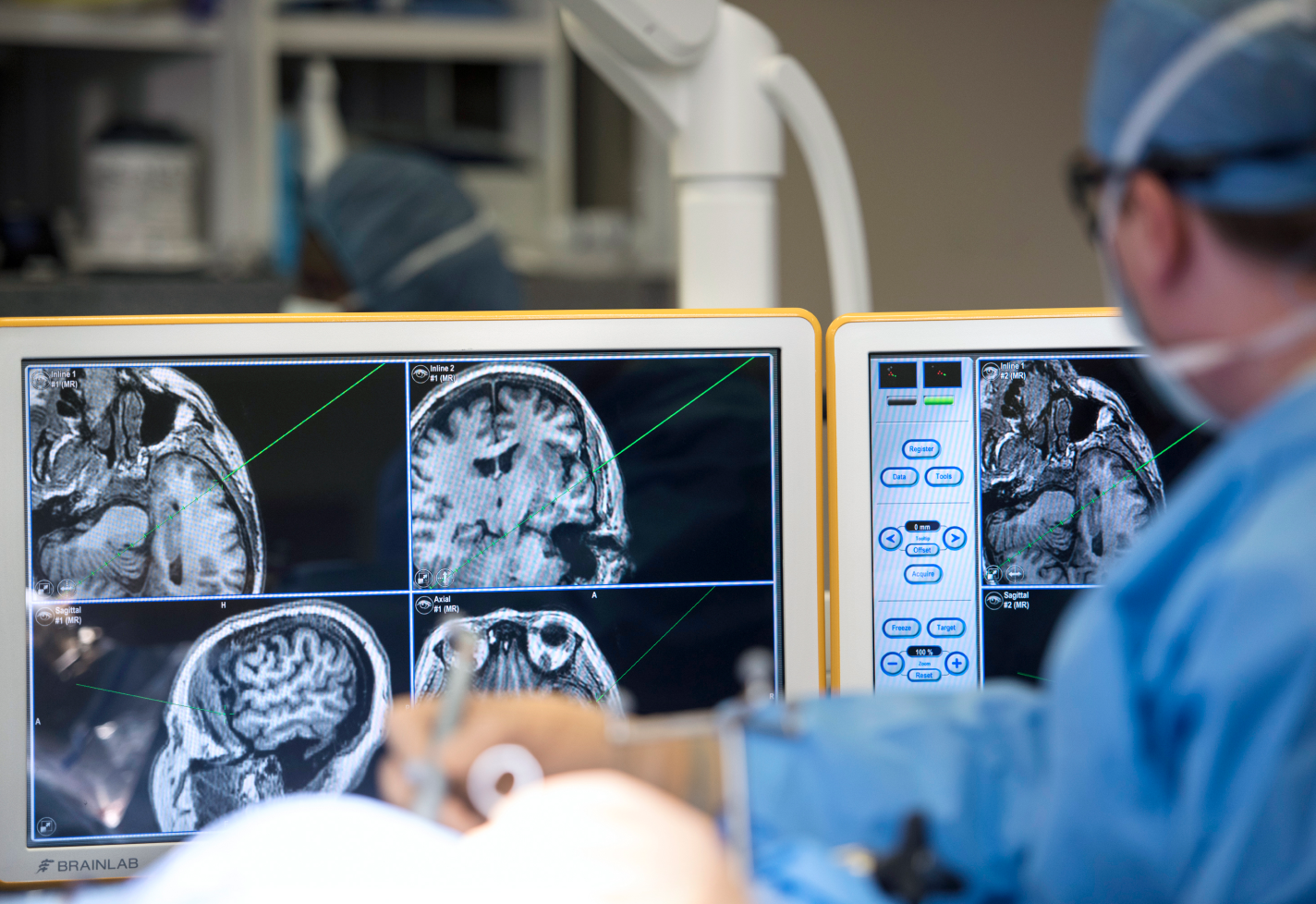Neurologists and Neurosurgeons
At Novant Health, neurologists and neurosurgeons will lead your brain tumor care team. They're specially trained to diagnose brain tumors and order the testing needed to develop a treatment plan. Neurosurgeons are neurologists who are also board certified to perform surgical procedures, including those used to remove tumors.


Cancer Patient Navigators
The cancer patient navigators at Novant Health offer personalized guidance to help you navigate through all of the information and appointments needed for your treatment. These registered nurses are available to provide advocacy and support your physical and emotional needs beginning at diagnosis and continuing through treatment and recovery.
The Role Of An Oncologist
If it's determined that your tumor is malignant, an oncologist will be added to your care team. These specialists are experts in diagnosing and treating cancer with medications and radiation. They'll collaborate with your neurologist and neurosurgeon to determine the best course of action for your specific case.


How Do Brain Tumors Form?
A brain tumor forms when normal cells mutate into abnormal cells and grow at an uncontrolled rate. A metastatic brain tumor starts elsewhere, like your lungs or breasts, and spreads to the brain. Both benign and malignant (cancerous) tumors should be treated as both can impair proper brain function.
The Difference Between Benign and Malignant Tumors
Benign brain tumors aren’t cancerous and develop when cells grow abnormally. Although they are not likely to spread to other parts of the body, benign tumors can still compress parts of the brain that will affect normal brain function. These tumors tend to stay in one place and grow slowly and patients often have a number of options for effective treatments.
Malignant tumors are formed when cancerous cells multiply and develop into a mass. Unlike benign tumors, cancer cells have the ability to spread and grow in other parts of the body. The most common treatments for malignant tumors are surgery, radiation and chemotherapy.
Brain Tumors Caused by Other Cancers
Cancer can spread from any part of your body to the brain, but there are specific cancers that are more likely to spread to, or metastasize, to the brain. Those include breast, lung, kidney, colon and skin cancer. As a metastatic brain tumor grows, it can lead to various symptoms, including:
- Headaches
- Seizures
- Speech problems
- Memory loss
- Weakness and balance issues
- Behavioral changes

Your Brain Tumor Care Team
When a brain tumor is suspected or detected, Novant Health neurologic specialists can provide all the care you will need from diagnosis to treatment and rehabilitation. Your multidisciplinary team may include:
- Neurosurgeons
- Neurologists
- Oncologists
- Radiation oncologists
- Neuropathologists
- Imaging technicians
- Clinical nurses
- Rehabilitation specialists
Neurologists and Neurosurgeons
At Novant Health, neurologists and neurosurgeons will lead your brain tumor care team. They're specially trained to diagnose brain tumors and order the testing needed to develop a treatment plan. Neurosurgeons are neurologists who are also board certified to perform surgical procedures, including those used to remove tumors.
Cancer Patient Navigators
The cancer patient navigators at Novant Health offer personalized guidance to help you navigate through all of the information and appointments needed for your treatment. These registered nurses are available to provide advocacy and support your physical and emotional needs beginning at diagnosis and continuing through treatment and recovery.
About Cancer Patient Navigators
The Role of an Oncologist
If it's determined that your tumor is malignant, an oncologist will be added to your care team. These specialists are experts in diagnosing and treating cancer with medications and radiation. They'll collaborate with your neurologist and neurosurgeon to determine the best course of action for your specific case.
Getting a Brain Tumor Diagnosis

Angiography
In this procedure, dye gets injected into an artery. Radiologists use X-rays to follow the dye's flow through your blood vessels. That allows them to see which blood vessels are supplying blood to your brain tumor.
Computed Tomography (CT)
A CT scan is a more detailed type of X-ray. Besides outlining where the tumor is, a CT scan can also depict any bone structures near the tumor in precise detail.
Magnetic Resonance Imaging (MRI)
MRIs are the preferred method of identifying brain tumors and usually provide greater imaging detail for the tumor than CT scans. However, CT scans provide better imaging for the bones of the skull.
Treatments for Brain Tumors

Post-Surgery Brain Tumor Care
Your Partners in Recovery
At Novant Health, care for brain tumor surgery continues well after you are treated to ensure you recover quickly and as comfortably as possible. You care team can connect you with other professionals to assist in your recovery, including:
- Physical therapists
- Occupational therapists
- Speech therapists
- Cognitive rehabilitation experts
- Registered nurses for in-home wellness checks
Your Hospital Stay
You'll typically stay in the hospital for several days to a week following brain tumor surgery. That timeframe may vary depending on the following:
- Your age and general level of health
- The procedure used to remove the tumor
- Location of the tumor
- Complications during surgery
- Affected parts of your brain
- The progress you're making
When it's time for you to go home, you and your family or caretaker will be given a discharge plan that spells out what’s needed for your continuing care and recovery, including medication prescriptions, wound care, rehabilitation and follow-up appointments.
Outpatient recovery
A brain cancer diagnosis can be challenging for both you and your family. That’s why Novant Health offer supports services like counseling, support groups, financial resource guidance/case management and educational seminars to help deal with the mental, emotional and financial aspects of a diagnosis.
Integrative Health
Our integrative cancer treatment centers offer a variety of therapeutic activities to help you manage your mental, emotional and physical well-being during and after cancer treatment, including nutrition counseling, massage therapy, acupuncture and other traditional Chinese medicine and more.
